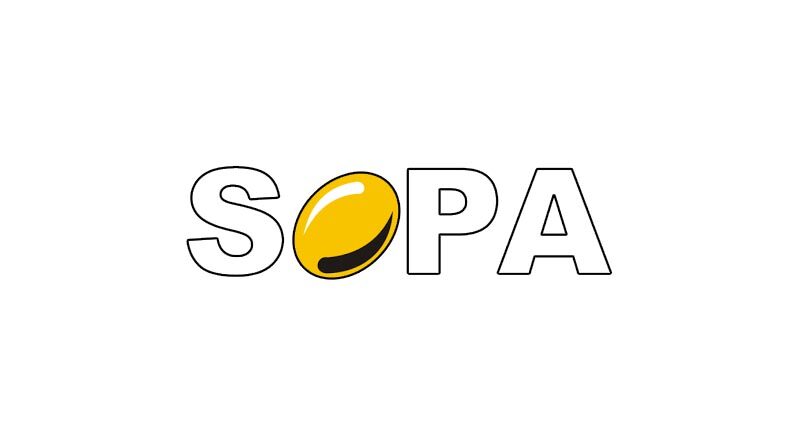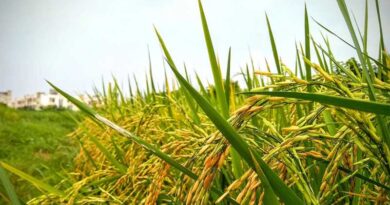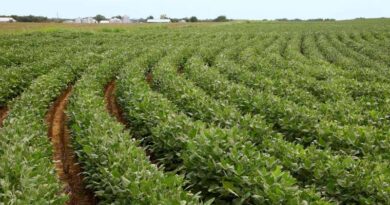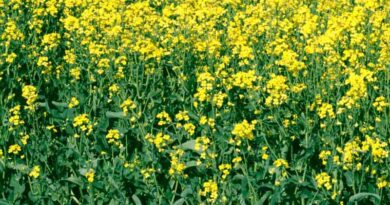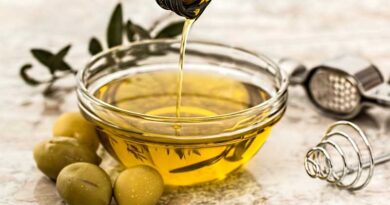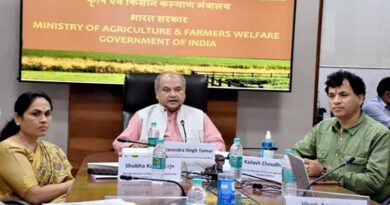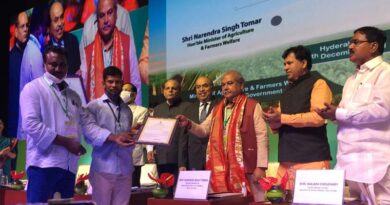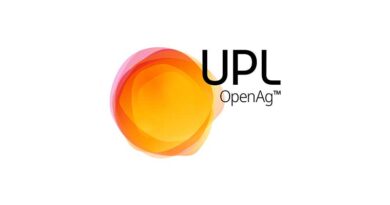SOPA urges PM to implement NMEO without delay with adequate financial outlays
24 February 2022, New Delhi: With an annual growth of 4%, both in area and productivity of oilseeds, India could be self-reliant in edible oils by 2030, Dr. Davish Jain, Chairman, Soybean Processors Association of India said on Thursday, urging the PM to implement National Mission on Edible Oils without delay with adequate financial outlays. He was speaking in the webinar on Smart Agriculture – Strategies for Implementation, which was also joined by Hon’ble PM Narendra Modi in the inaugural session. The Concerned Union Ministers, representatives of state governments, representatives from industry and academia and farmers through various Krishi Vigyan Kendras were present on the occasion.
Highlighting the need of substantial expenditure to increase oilseed production, SOPA Chairman said, “National Mission on Edible Oil is a great initiative, but it needs to be backed by a much larger corpus of funding, esp. for major oilseed crops viz.Soybean, Rapeseed-Mustard, Groundnut and Sunflower Seed. Smaller budgets will not be adequate for greater impact especially in Lab-to-Land transfer of technology through extension services to Oilseed farmers.”
“Set up a challenging task to increase area and productivity by just 4% per annum and we can be Atmanirbhar in edible oils by 2030,” he added.
The breakout session of the webinar in which strategy to achieve self-reliance in edible oil was discussed was also joined Hon’ble Union Minister for Commerce and Industry, Consumer Affairs, Food and Public Distribution and Textile Piyush Goyal while Dr Trilochan Mohapatra, DG, ICAR was the moderator of the session.
SOPA Chairman requested the government to encourage use of technology in agriculture and establish community based facilities for use by groups of farmers.
He suggested a free or highly subsidized distribution of Soybean seeds to farmers in Haryana and Punjab to divert acreage by shifting from paddy and wheat cultivation to soybean and rapeseed/mustard crops in his presentation.
“Start a massive awareness programme for use of soy based food in PDS e.g, fortified Atta and also increase allocation of funds for inclusion of soybean in mid-day meal and other state funded schemes. Current funding is too low. Help industry to modernize and also set up more downstream Soya based product lines also as Start-up facilities for making value added production”, the presentation mentioned.
“Soybean is not just an oilseed. In fact it is more of a source of protein, both for human as well as poultry/livestock/aquaculture feeds. More than 600 products have already been developed from soybean, though in India, we have a very few. This offers a huge opportunity for the soy processing industry and farmers,” SOPA Chairman said.
In terms of value, protein products contribute to about Rs. 50,000 crores and soybean oil would be another Rs. 25,000 crores at current prices. Soybean is a major kharif crop, and does not need a lot of water. Soybean productivity in India is low, mainly because of poor extension and inadequate or improper input supply, particularly good quality seeds.
The soybean is a crop of strategic and social importance for many reasons. Firstly, it helps the farmers in utilising the Kharif season with very low crop maintenance requirement, which in the last couple of years has resulted in good earnings for the farmers also.
Secondly, the Soybean while on the one hand augments the indigenous edible oils supply, on the other it is also the source of high protein for vegetarians which is probably lowest in cost and best in essential Amino Acids composition. India has large Vegetarian population and sources of protein are mostly non-vegetarian other than milk products. Soymeal also provides major protein source for poultry and aqua feeds.
“The consumption of Edible oil per capita is increasing and it has gone beyond the recommended levels.As per NIN, per capita per annum visible fat consumption should be 15 kgs. We are already using more. This is not a healthy trend especially in the light of the fact that most Indians fulfill their food calorie needs with carbohydrates and saccharides while quite deficient in protein intake”, Dr Jain said.
The Soybean is one of those solutions to this problem that can actually make a healthy nation by providing very low cost and at a very affordable price PROTEIN FOR ALL.
Low import tariff to enable edible oil availability at affordable price to consumer has a few challenging consequences.
“Exporting nations usually raise their price and also their export duties/taxes, leading to only a small benefit to our consumers while the nation sacrifices valuable foreign exchange as well as import duty revenues,” he pointed out.
“A country whose farmers produce exportable surpluses in grains, sugar, cotton etc. can as well achieve “Atmanirbharta” in oilseeds and edible oils. We can, rather we need to produce about 80-90 MMT of OilSeeds provided enabling policy provisions to incentivize the farmers are implemented at the ground level,” he added.
SOPA gave three some valuable suggestions to deal with situation of price hikes of edible and enhance domestic production:
1. Affluent section of society should bear the burden of a price increase to the supply chain of oilseeds and edible oils.
2. The marginalized section of society should be supported through cross-subsidy under PDS.
3. The subsidy so needed may be sourced from increased import tariffs as our capacity builds up.

